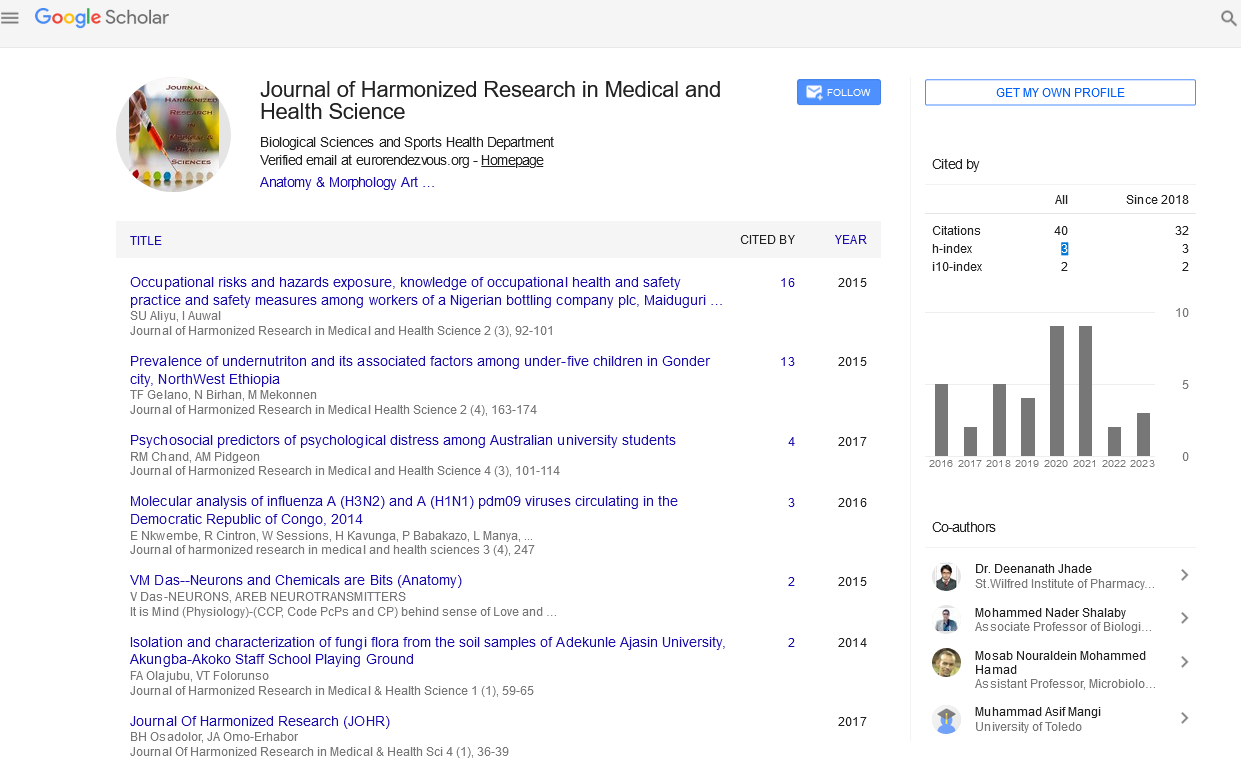EFFECT OF TRAMADOL ON BILIRUBIN, PROTEIN SYNTHESIS AND LIVER ENZYMES (AST, ALT) IN ANIMAL MODELS
Abstract
Author(s): Osadolor H. B. and Omo-Erhabor J.A.
Demand of tramadol in southern Nigeria has been on the increase and this demand has been shown to be made by youths. Uses include improved sexual performance and as lasting energy source for those wh o are labourers. The consequent misuse of tramadol at self-recommended doses for sexual improvement prompted the assessment of the effect of tramadol at these doses on hepatic function of male and female Oryctolaguscunniculus (European rabbits). Twenty seven healthy rabbits were used, weighing 1.0 to 2.0kg. These were divided into four groups of male and female controls and male and female tramadol treated groups. Tramadol treated groups were further divided into oral and intramuscularly administered groups. Animals were housed under laboratory conditions with commercially prepared feed and water ad libitum and one dark one light cycle throughout the experiment. Blood samples were collected at the end of the experiment and biochemical assays performed: Transaminases (ALT and AST), alkaline phosphatase (ALP), Bilirubin (Total and Direct) (TB and DB respectively), serum total protein (TP) and albumin levels (ALB). Tramadol treated groups were compared with control groups at the end of the study as well as within group comparison. Decrease activity was observed for AST (p<0.01) and ALP (p<0.0001). TP showed decreased levels (p<0.01) and TB and DB also showed decreased levels (p<0.05). ALT and ALB showed no change (p>0.05). This study suggest effective conjugative function of the liver with subsequent effective maintenance of hepatocyte integrity, thus, the ability of the liver to effectively metabolize tramadol at the doses been considered. Key words:Tramadol, Bilirubin, AST, ALT, Animal Models










